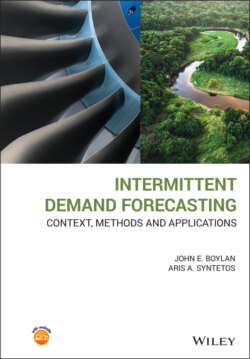Читать книгу Intermittent Demand Forecasting - John E. Boylan - Страница 64
3.2.2 Judgemental Adjustment of Orders
ОглавлениеSome demand planners exercise judgement by adjusting stock orders directly, whilst others do so by adjusting demand forecasts. Judgemental ordering has been the subject of some research, mainly through studies of behaviour in simulated environments. An early study of a simulated inventory distribution system (known as the ‘beer game’) showed that participants in the game often misperceived the feedback they received in multiple‐stage supply chains. This leads to ordering decisions that can be far from optimal (Sterman 1989) and can cause amplification of order variability throughout the supply chain, known as the ‘bullwhip effect’. In a different setting, based on a single‐stage supply chain, Tokar et al. (2014) found that participants tended to over‐order in anticipation of a spike of demand, relative to the optimal orders that would minimise the total inventory costs.
Although the experimental evidence on judgemental ordering is not encouraging, there are situations when it can be beneficial. A prime example is to take advantage of discounts from suppliers that are available only for a limited period of time. In making a judgemental adjustment to the order, the demand forecast should be left untouched if no change in demand from end‐customers is anticipated. In other circumstances, it may be appropriate to adjust the forecasts themselves. We shall return to forecast adjustments in Chapter 10, where there is a detailed discussion of the subject.
To summarise, judgemental adjustment of orders may have positive effects in gaining price discounts but can also contribute to the bullwhip effect, leading to additional inventory holdings. The effect of order adjustment may not be as great as the impact of forecast adjustment, as shown by a system dynamics investigation (Syntetos et al. 2011b) and a further empirical study (Syntetos et al. 2016b). Nevertheless, any price benefits should be weighed against increased inventory costs. If order adjustments are frequent, it would be good practice to keep records of the original recommended orders, as well as the adjusted orders. In this way, an organisation can monitor the effect of judgemental adjustments and evaluate whether they are beneficial or, more specifically, the circumstances under which they are beneficial.
